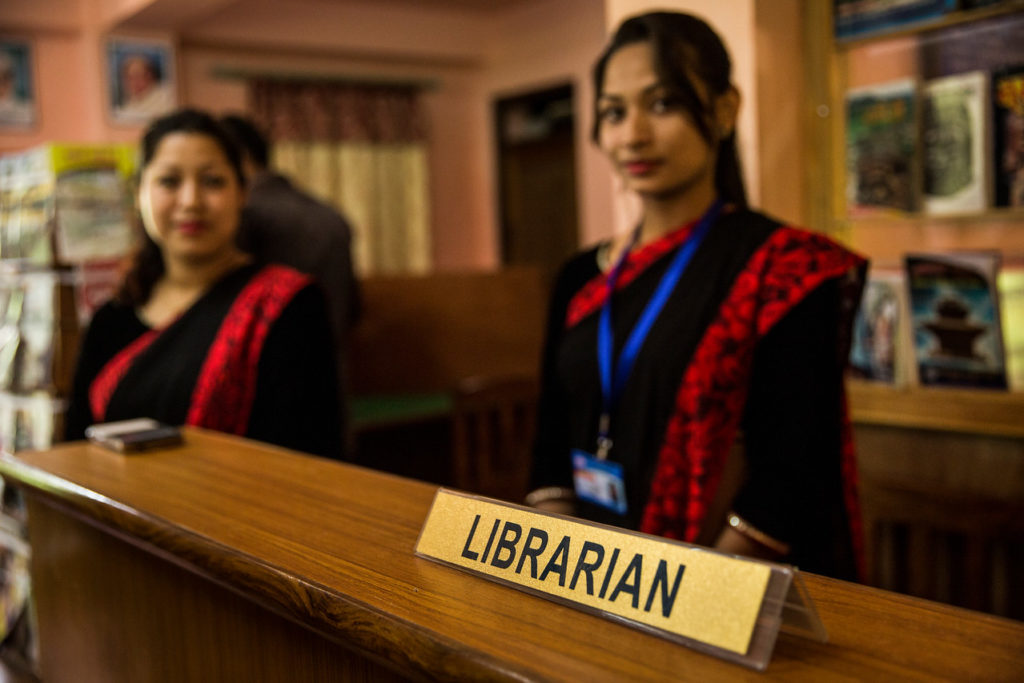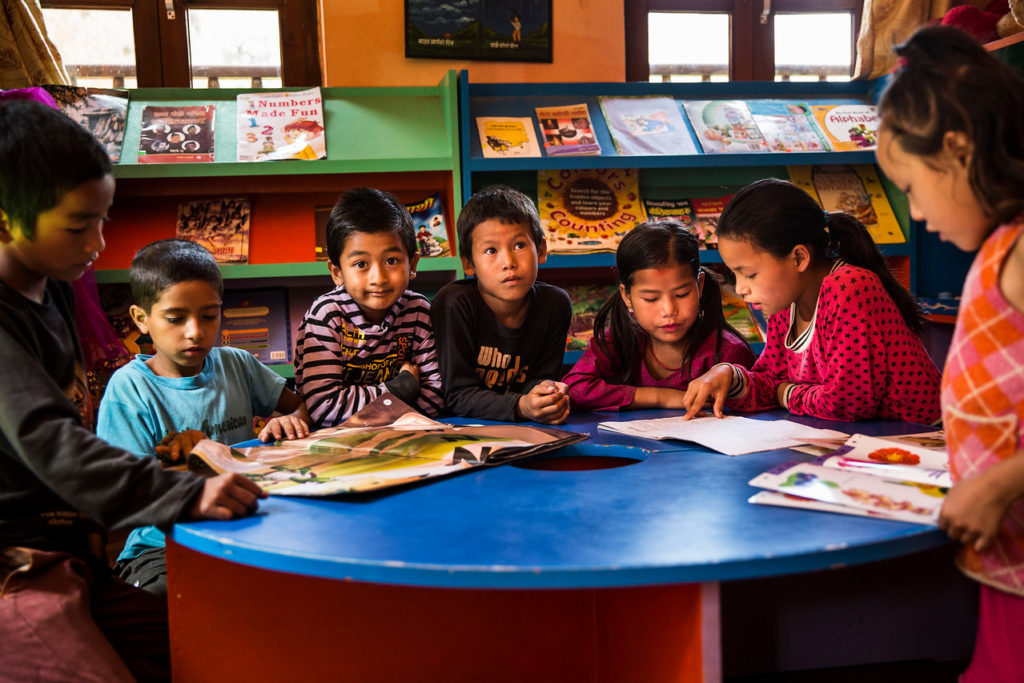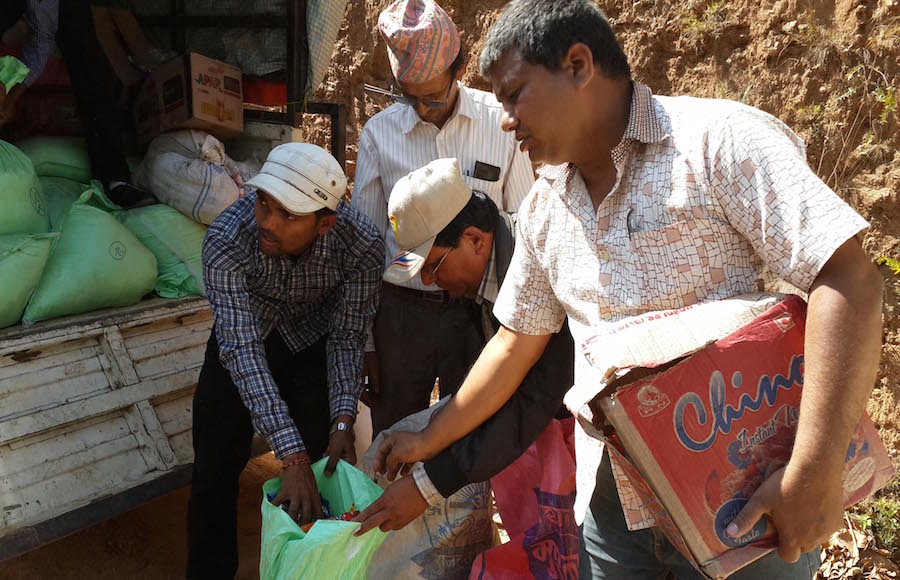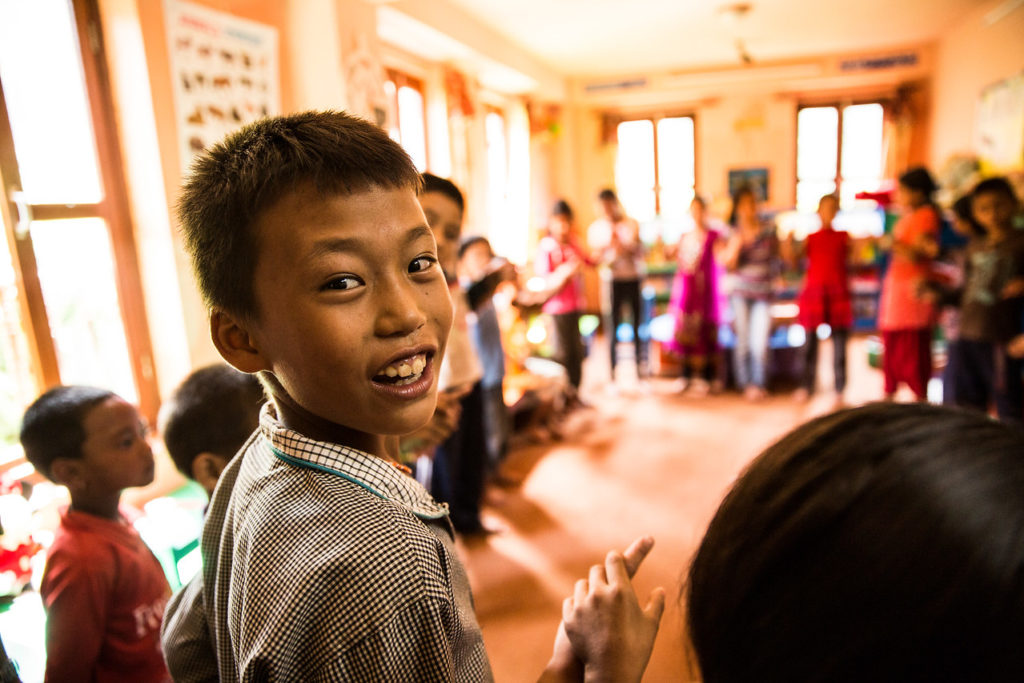When a visitor enters the Panauti READ Center’s charming wooden Nepali doors, they notice cheerful children interacting with engaged adults and seniors, and young women leading their peers through health education trainings or programs to help victims of domestic violence heal from the trauma they have suffered. The long-term, independent sustainability of each READ Center is necessary for the work we do to succeed and continue. Some READ Centers have reached the point that they can sustain themselves without our assistance, financial or otherwise, and that’s why we are focusing on helping more of them develop financial sustainability and long-term independence in 2020.
 The Panauti READ Center is located in a thriving, tight-knit community at the fringes of Kathmandu, and offers a look at one example of how a thriving READ Center can function and inspire. The Center was opened in September 2014, on the back of $83,000 in donations from local supporters and organizations.
The Panauti READ Center is located in a thriving, tight-knit community at the fringes of Kathmandu, and offers a look at one example of how a thriving READ Center can function and inspire. The Center was opened in September 2014, on the back of $83,000 in donations from local supporters and organizations.
A Strong Foundation of Local Support
From the outset, the Center has enjoyed widespread community support based on a deep understanding of its importance, due to the diligent work of the founding committee members.

The library is a community center, where different services are provided as per need of the community. Education for all levels of community is the main focus. – Ram Krishna Poudel, Panauti
Library plays lead role in development of society. It helps to resolve problems in the community. – Om Krishna Shrestha, Panauti
As we’ve seen with other Centers, local leadership — which is a core element of the READ model that we seek to nurture at all our READ Centers in country offices — fostered a desire and ability to support their fellow communities, most evidently, after the 2015 earthquake.
Less than a year after opening its doors, the Panauti READ Center collected and distributed food, medicine, and clothing to 1,700 people in 350 households in surrounding communities, as well as to some of the harder-hit districts such as Sindhupalchowk and Bhaktapur, by partnering with a number of local organizations and community volunteers.

Maintaining Local Ownership and Financial Independence
Building on the foundation they established by raising the money to create the Center, the Panauti READ Center continued generating its own revenue through its sustaining enterprise – a small souvenir shop – and they earn more than enough to cover annual operating costs.

The Panauti READ Center (locally known as Gyan Bikas Community Library and Resource Center) also raises enough funds through grants and local partnerships to offer vital programs addressing community-driven needs. These programs are designed by and offered at the Center based on the needs of the community, and have included a campaign to end child labor, Safe Migration, and My Grandparents, My Story (a literacy programmed aimed at preserving local folktales and oral traditions).
Although they remain affiliated with both READ Nepal and READ Global, and they are proud of their roots and connection to the vast network of READ Centers across the region. At READ Global, we appreciate the strides of the Panauti READ Center towards sustaining themselves, and as they boldly stand as graduates of the READ network and mission.




